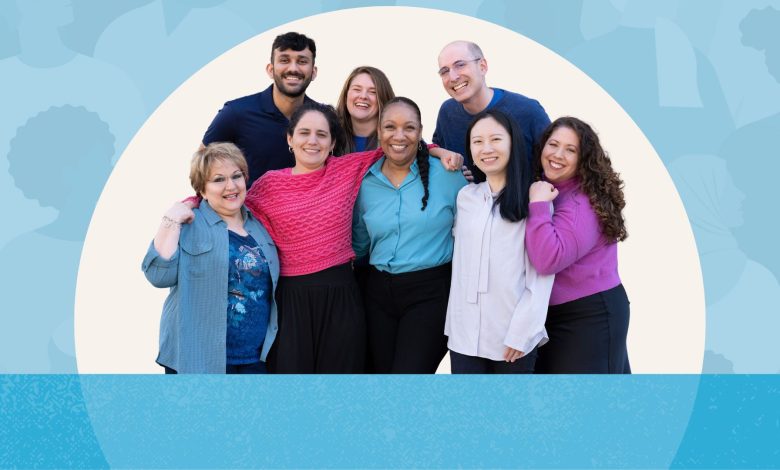Facing Our Risk of Cancer Empowered (FORCE)

[ad_1]
In 1996, Sue Friedman was diagnosed with breast cancer at the age of 33. A year and a half later, genetic testing revealed that she had a BRCA2 mutation, which increases the risk of developing breast cancer, ovarian cancer, and certain other types of cancer.
Friedman looked for an organization and community dedicated to helping people who are carrying hereditary mutations that raise the risk of cancer, but she could not find one. So she remedied that: Shortly after midnight on New Year’s Eve 1999, Friedman created an online support and discussion forum for those with BRCA mutations — which would grow to become the organization now known as FORCE (Facing Our Risk of Cancer Empowered).
In 2019, FORCE expanded to its mission beyond BRCA mutations to include individuals and families impacted by other genetic mutations linked to cancer — including Lynch syndrome, ATM, PALB2, CHEK2, and PTEN, among others.
FORCE’s Goal
“FORCE is dedicated to improving the lives of millions of individuals and families facing hereditary breast, ovarian, pancreatic, prostate, colorectal, and endometrial cancers,” says Karen Kramer, FORCE’s senior vice president of marketing, who discovered the organization 14 years ago when she learned that she is BRCA1-positive.
Also at the forefront of their mission is advocacy. “FORCE advocates for laws protecting people with hereditary cancer or its risk,” Kramer says. “We advocate to ensure access to screening, prevention, and treatment options.”
Services They Provide
The organization offers many ways for people affected by hereditary cancer to obtain help and support, including a toll-free helpline; one-on-one, personalized peer navigation; online message boards; and a private Facebook group.
In addition, FORCE hosts a wide variety of support groups, both virtually and in person, including meetings for cancer survivors, previvors (people with an inherited predisposition to cancer who haven’t yet developed the disease), caregivers, men, people of color, and LGBTQ+ folks, as well as meetings conducted in American Sign Language, and more.
FORCE’s XRAY program explains hereditary cancer–related clinical research and media coverage in an accurate, understandable, and accessible manner. Their Research and Clinical Trials tool enables people to search for and enroll in relevant clinical trials.
Events
Since 2006, FORCE has held Joining FORCEs Against Hereditary Cancer, an international conference that brings together cancer survivors and previvors, healthcare providers, and caregivers. The U.S.-based conference takes place every 18 months, usually in June or October. The conference was held virtually for two years due to COVID-19, but it will be returning to an in-person format in 2024 in Philadelphia.
Past session topics have included how to talk to your family about hereditary cancer; cancer risks, screening, and prevention for people with genetic mutations other than BRCA; diet and nutrition tips for cancer survivors and previvors; and more. The event also offers opportunities for socializing and networking.
Core Belief
FORCE believes that no one should face hereditary cancer alone, and they aim to help make that a reality. “We work hard every day to provide families affected by hereditary cancer with support and the education and resources they need to make informed healthcare decisions,” Kramer says.
Sickness and disease can still be taboo topics, and therefore they might not be talked about as openly as they should be in families, leaving people unaware of their own family medical history and potential cancer risk.
“We hope there continues to be more awareness around hereditary cancer, so that everyone who is at high risk has the opportunity to understand their risk and take actions to prevent cancer,” Kramer says. “We hope for a time when there are better, less invasive options for preventing and treating hereditary cancers. Nothing would make our FORCE team happier than to no longer be needed.”
[ad_2]




